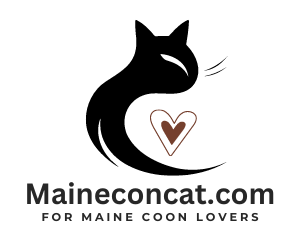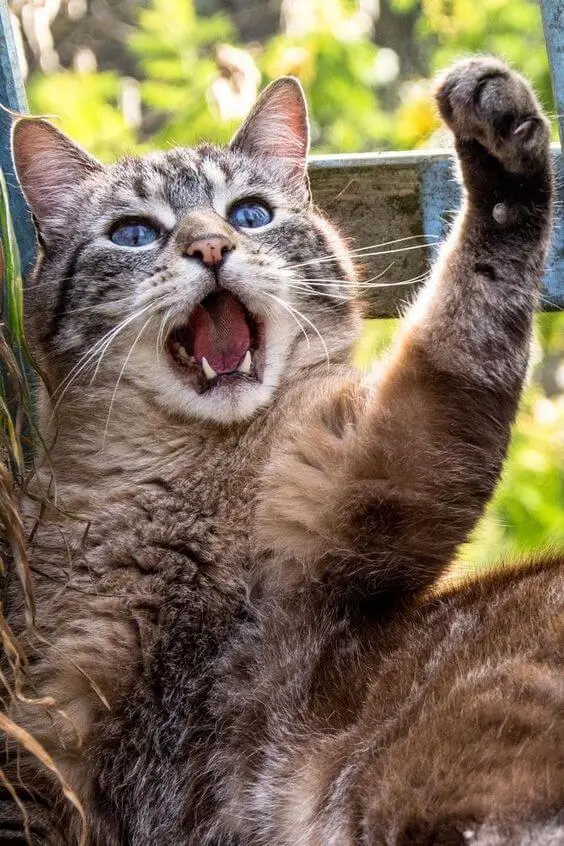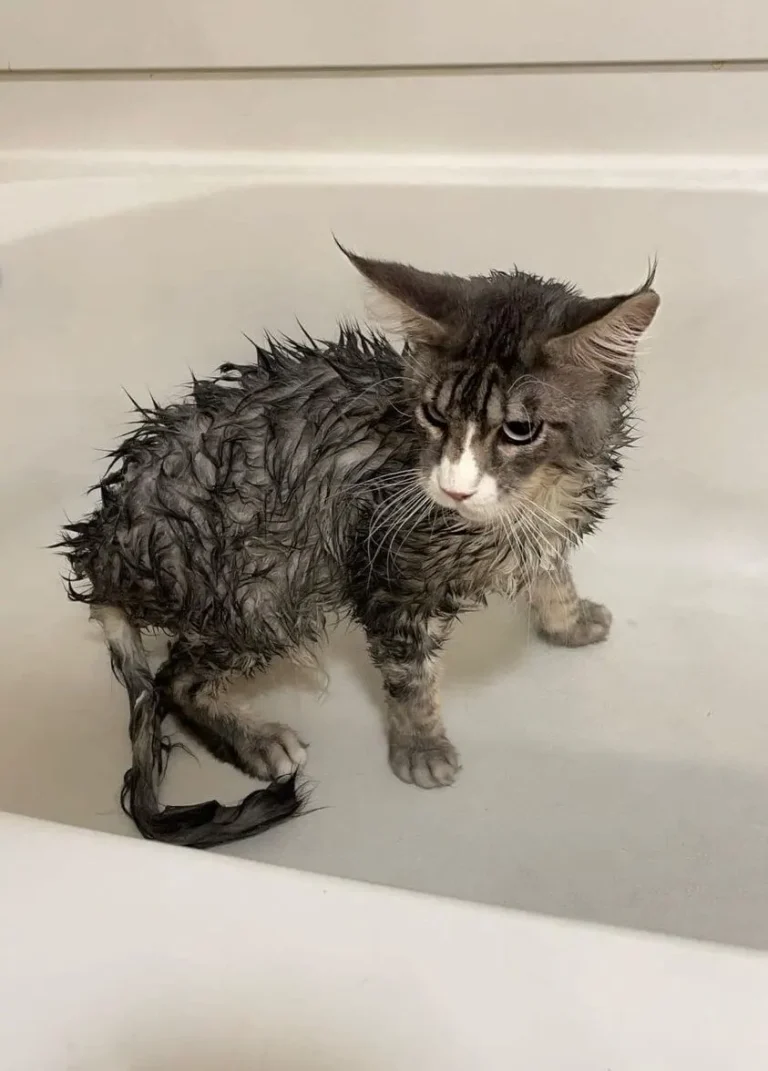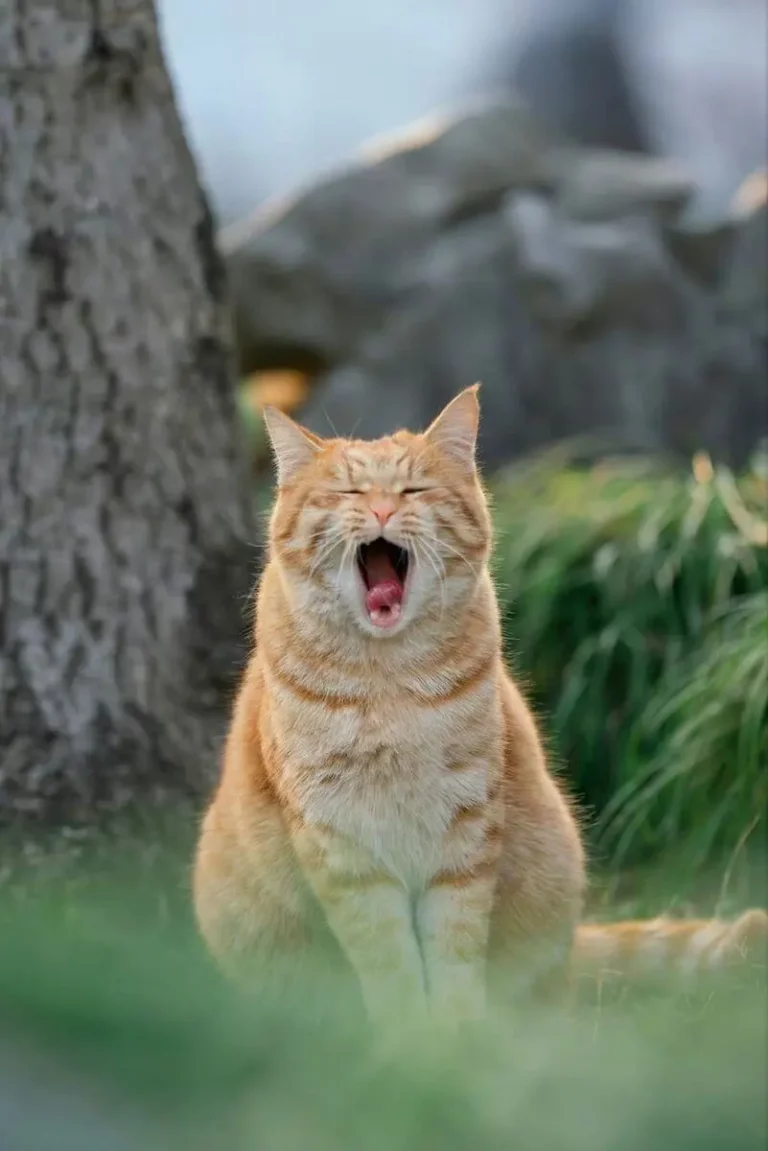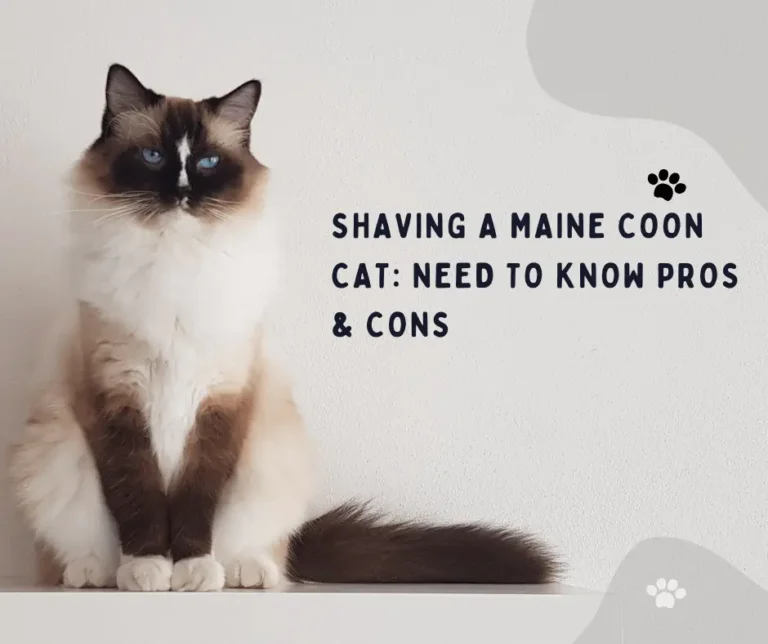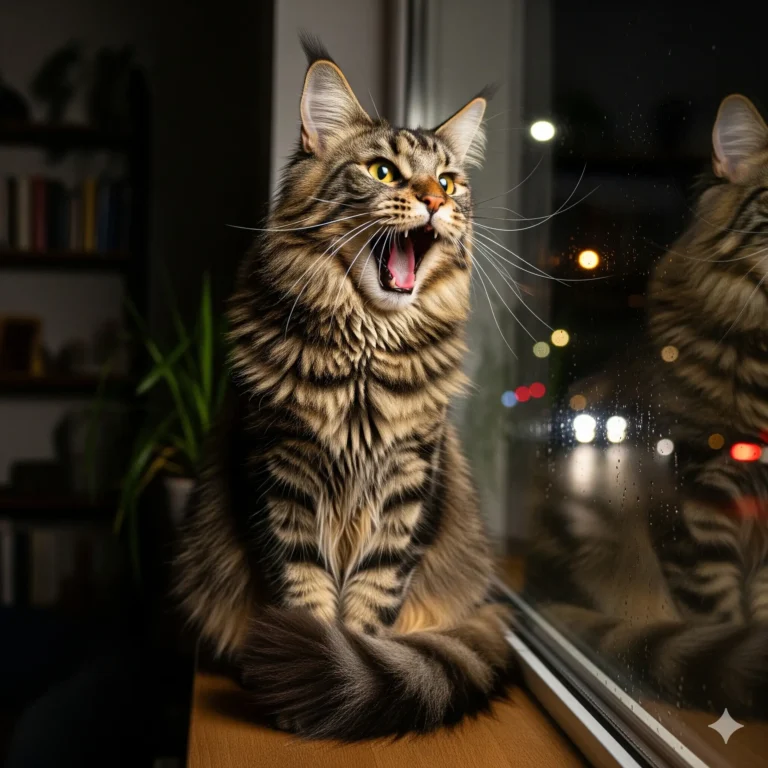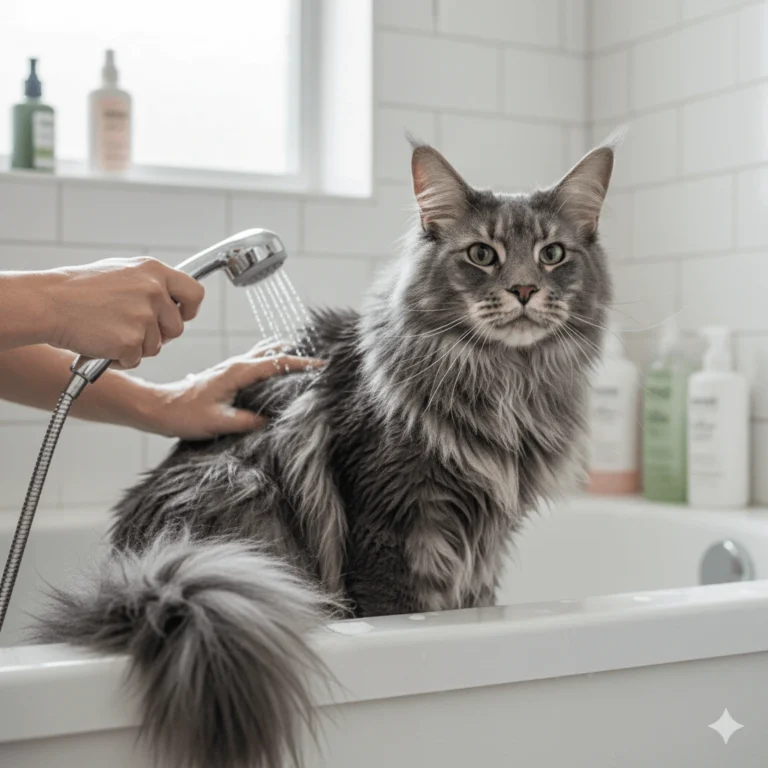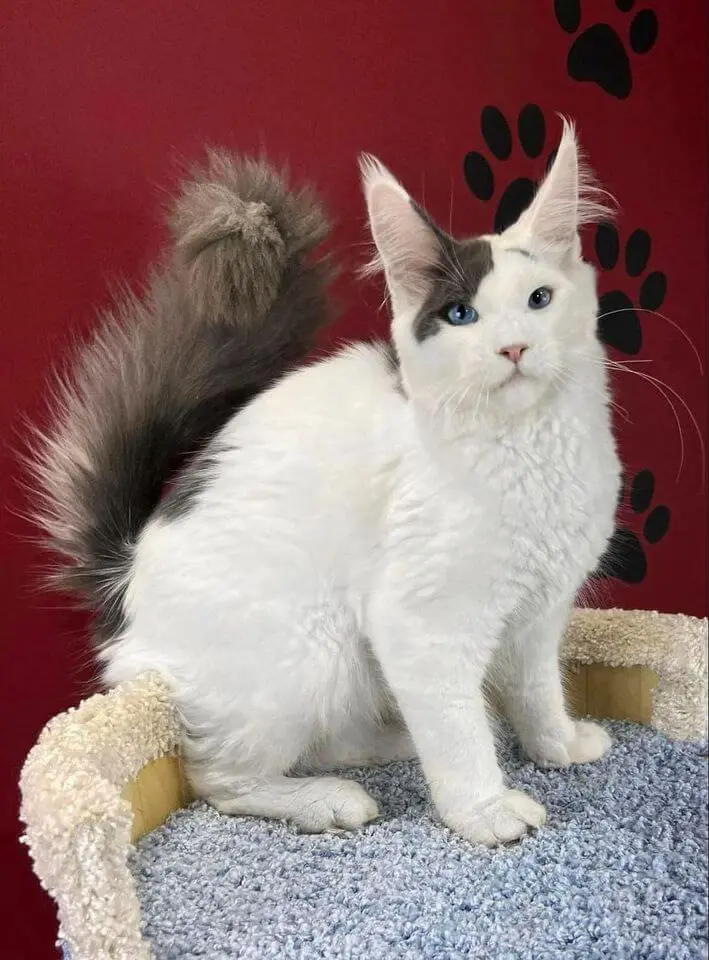Are Maine Coon Cats Aggressive? Causes And Facts!
Are Maine Coon Cats Aggressive? It is a very informative question that arises in every Maine Coons owner’s mind. Maine coon cats are not aggressive by nature, they often become aggressive when they have the threat of any defense, feel pain or discomfort, or if anyone misbehaves with them. They are often described as friendly, sociable, and gentle. Maine Coons have a reputation for being affectionate and getting along well with other pets and children. However, like any cat breed, individual Maine Coons can display aggression in certain situations or due to specific triggers.
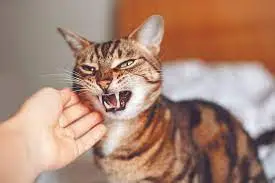
It’s essential to remember that aggression in Maine Coons is not the norm, and proper socialization, positive reinforcement, and a nurturing environment can help prevent or address any aggressive behavior that may arise. While Maine Coons are typically not aggressive, they may display territorial behavior or aggression towards other pets in the household. Monitoring their behavior and providing appropriate training or separation techniques is important if necessary. Early socialization can also play a role in preventing aggression towards other animals. Their aggressive behavior is due to many causes.
First, it’s important to note that aggression in cats can be caused by various factors. These could be
- Genetics
- early experiences
- environmental stressors
Therefore, it’s crucial to understand that each Maine Coon cat is unique, and their behavior can differ based on their background and circumstances.
Are Maine Coon Cats Aggressive? Owners Reviews!
Maine coons are very soft, gentle, and friendly cats. Normally they are not aggressive, but there are some causes and facts due to which they become aggressive. It’s important to note that aggression in Maine Coon cats is uncommon and is typically not a breed-specific trait. If your Maine Coon is displaying aggressive behavior, it’s important to identify the underlying cause and work with a veterinarian or animal behaviorist to develop an appropriate treatment plan.
Here are some potential causes of Maine Coon aggression by their owners, I have collected their reviews and put them all together to make a combined result of why My Maine Coon is aggressive?
1-Fear Or Anxiety:
If a Maine Coon feels threatened or anxious, it may respond with aggressive behavior. This can be caused by a variety of factors such as a new environment, loud noises, or unfamiliar people or pets. Like, if they come with new people or pets for some time they feel anxiety. If they are physically trapped or cornered, they will become aggressive, and if owners attempt to move toward a Maine Coon cat in this situation, there is a real risk of an attack.
A cat’s fear and aggression can also be sparked by loud noises, unfamiliar people or animals, or changes in the environment.
Due to fear or anxiety, Maine Coon become aggressive and they go towards behavior changes like,
Biting
Scratching
Hissing
Biting:
Maine Coons, like all cats, have an instinct to bite and scratch, especially when playing or feeling threatened. However, if your Maine Coon is biting excessively or aggressively. Maine Coons are known for their playful personalities, and they may bite as part of their play behavior. However, it is important to teach them that biting is not acceptable and redirect their play to toys instead.

If your Maine Coon is biting you, they may be trying to get your attention. In this case, it is important to avoid reinforcing the behavior by not responding to the biting and only giving attention when the cat is calm.
Maine Coons may resort to biting if they feel threatened or anxious, such as in situations like a visit to the vet or meeting new people. In this case, it is important to provide a safe and secure environment for the cat and to work on desensitizing them to the trigger.
Scratching:
Scratching is an essential behavior for cats, as it helps them remove the outer layer of their claws, stretch their muscles, and mark their territory. However, if your Maine Coon is scratching excessively or in inappropriate places, it can be a problem.
Maine Coons need a designated area to scratch, such as a scratching post or mat. If there is not an appropriate place for them to scratch, they may resort to scratching furniture, carpets, or other inappropriate objects. Maine Coons may scratch excessively if they are bored or anxious. Providing plenty of toys, playtime, and attention can help to alleviate these issues.
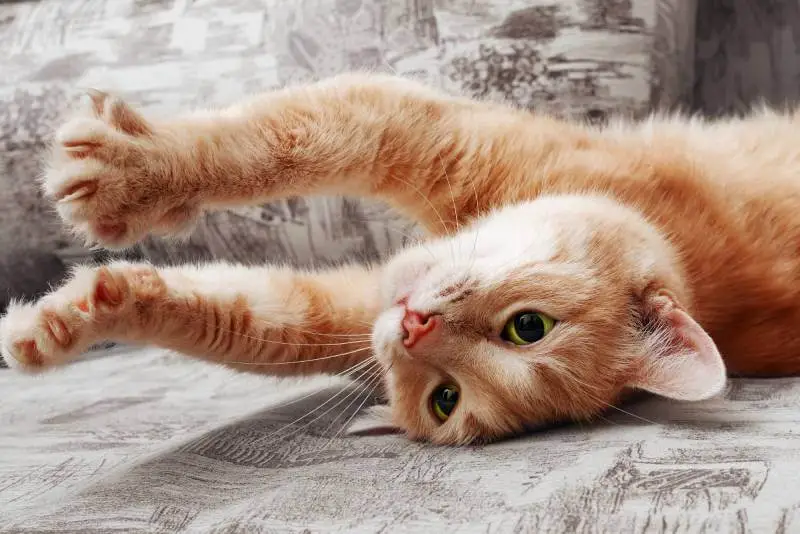
Excessive scratching can be a symptom of an underlying health issue, such as fleas, allergies, or skin infections. If your Maine Coon is scratching excessively, it is important to have them checked by a veterinarian to rule out any medical issues. It is important to understand the underlying cause of the hissing. Addressing any potential triggers, such as fear, anxiety, or pain, can help to alleviate the hissing behavior and ensure that your Maine Coon feels safe and comfortable in their environment.
Hissing:
Maine Coons, like all cats, may hiss as a form of communication. Hissing is a warning behavior that cats use to indicate that they feel threatened or uncomfortable. If your Maine Coon is feeling scared or anxious, it may hiss as a warning to stay away. This could be due to a new environment, new people, or other unfamiliar situations.
2–Territorial Behavior:
Maine Coon cats can be quite territorial and may become aggressive toward other pets or even humans if they feel their space is being invaded. This can manifest as hissing, growling, or physical attacks. Maine Coons may hiss to defend their territory. This could occur if there are other cats or animals in the home, or if the cat feels threatened by an outside animal. If your Maine Coon is experiencing pain or discomfort, it may hiss if they are touched or moved in a way that exacerbates the discomfort. If a Maine Coon has recently given birth, she may hiss to protect her kittens from perceived threats.
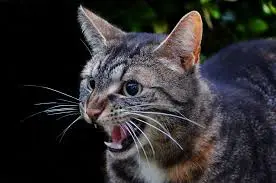
3-Pain Or Discomfort:
If a Maine Coon is in pain or discomfort, it may respond with aggressive behavior when touched or handled. This can be due to an underlying health condition or injury.
We can not see all problems or any health issues in Maine coon cats with open eyes, and also It is impossible that these cats to explain their problems. Therefore, if an owner notices that their usually loving and affectionate Maine Coon has become aggressive overnight, This is due to the pain which Maine coons are suffering.
Cats can easily become injured and owners mostly do not notice or always they are not with their cats, therefore owners should always be alert to changes in their cat’s behavior and mannerisms.
If this issue happens then observe these things:
- Check the cat’s body for scratches, blood, bites, and visible limp.
- Gently stroke the cat’s body and observe changes in the cat’s movements.
- Also, check the behavioral changes like throwing the food indicates that it has gum pain.
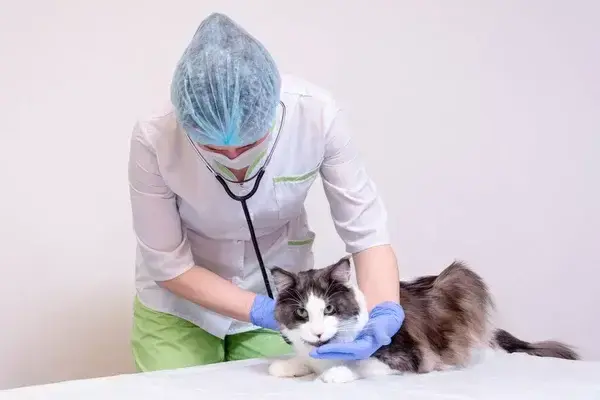
Ask a veterinary doctor immediately to check the health of Maine coons..
4-Lack Of Socialization:
If a Maine Coon is not socialized properly as a kitten, it may not be comfortable around humans or other pets. This can lead to fear or aggression towards unfamiliar people or animals. As kittens, Maine Coons must be properly socialized. They may become aggressive toward other cats, animals, or people if they are not socialized appropriately.
Are Maine Coon Cats Aggressive? How To Handle Aggression?
Are Maine Coon Cats Aggressive? Yes, Any cat, regardless of breed, can be aggressive. You must determine the situation. Take the cat to the vet first. They will be able to determine whether the problem is psychological or physical.
handling a Maine Coon requires patience, gentle care, and attention to its needs. Provide them with a comfortable space, regular grooming, and playtime to keep them happy and healthy. With proper care, your Maine Coon can be a loving and loyal companion for many years to come.
Here are some tips on how to handle an aggressive Maine Coon:
Approach the cat gently:
When approaching a Maine Coon, it’s important to be calm and gentle. Speak to them in a soft tone and avoid sudden movements. Let the cat sniff your hand and get comfortable with your presence before attempting to pet them. Below are some tips on how you can gain the trust of your Maine coon cat. In this video, you can find out some useful tips to approach the cat gently.
Support their weight:
Maine Coons are heavy cats, and it’s important to support their weight when picking them up. Place one hand under their chest and the other hand under their hind legs to lift them safely. Avoid lifting them by their front legs or tail.
Brush their coat regularly:
Maine Coons have long, thick coats that require regular grooming to prevent matting and tangles. Use a soft brush to gently comb their fur, starting at the base of the hair and working your way outwards. Be gentle around sensitive areas such as their belly and legs.
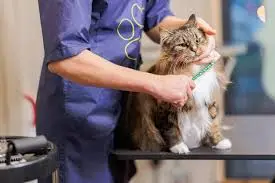
Trim their nails:
Maine Coons have sharp claws that can cause damage to furniture and fabrics. Trim their nails regularly to keep them blunt and prevent them from scratching. Use a pair of pet nail clippers and be careful not to cut the quick, which is a sensitive blood vessel in the nail.
Play with them:
Once the Maine Coon becomes more comfortable around you, you can try enticing it with treats or engaging toys. This can help establish positive associations with your presence and build trust. Maine Coons are energetic cats that enjoy playtime. Provide them with toys and interactive games to keep them entertained and engaged. Use a laser pointer, feather wand, or balls to play with them.
Provide them with a comfortable space:
Maine Coons are indoor cats that require a comfortable space to rest and relax. Please provide them with a soft bed, scratching post, and toys to keep them occupied. Make sure they have access to fresh water and a clean litter box.
Once a time my Maine coon cat had shown aggression, I kept him in my room overnight to ensure that he was comfortable. He found his favorite spot to sleep on my pillow, giving the impression that he was already Comfortable. then in the morning, I played with him and made him calm.
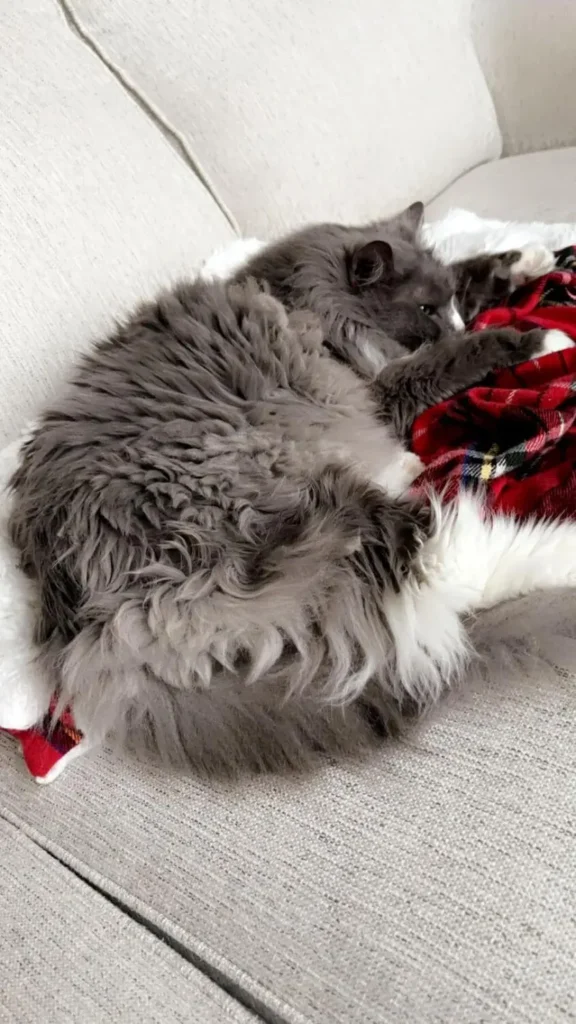
Give them attention:
Maine Coons are social cats that enjoy human company. Spend time with them each day, petting, talking, and playing with them. This will help strengthen your bond with your cat and keep them happy and content.
Move slowly:
Sudden movements can startle cats, so approach the Maine Coon cat calmly and quietly. Give it some time to observe you and feel comfortable with your presence.
Respect personal space:
Cats value their personal space, so it’s crucial to respect their boundaries. Avoid reaching out to touch the cat immediately, especially if it appears cautious or unsure.
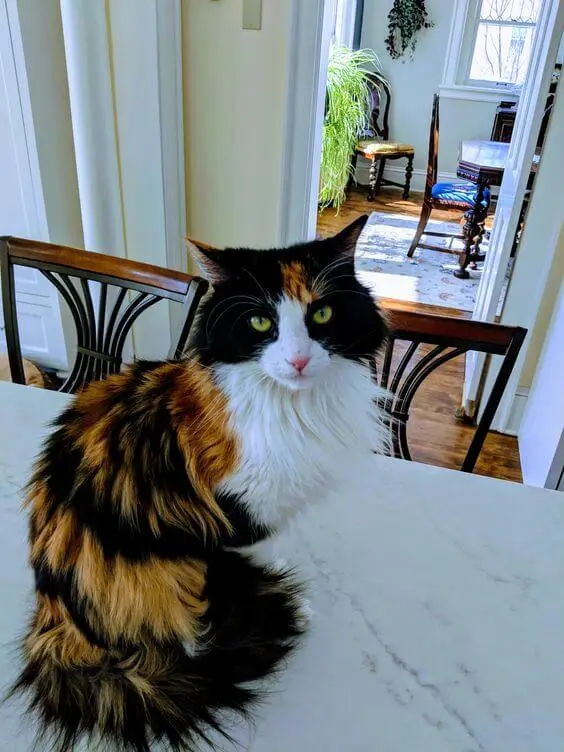
Speak softly:
Cats have sensitive hearing, so use a soft and soothing tone of voice when speaking to the Maine Coon. This can help create a relaxed and welcoming atmosphere.
Allow the cat to initiate contact:
Instead of forcing interaction, let the Maine Coon approach you at its own pace. Extend your hand slowly and offer your fingers for the cat to sniff or rub against. If the cat seems receptive, you can gently pet it on the head or chin.
Observe body language:
Pay attention to the cat’s body language to gauge its comfort level. A relaxed cat will have a soft body posture, slow-blinking eyes, and may purr. If the cat shows signs of anxiety or discomfort (e.g., hissing, flattening ears, swishing tail), give it space and try again later.
Conclusion:
In conclusion, Are Maine Coon cats aggressive can be a complex issue with various underlying causes and triggers. It is essential to approach aggressive behavior with understanding, patience, and a commitment to addressing the root causes. While not all Maine Coons will display aggression, some individuals may exhibit aggressive tendencies due to factors such as fear, stress, territoriality, or a history of trauma.
Professional guidance from a veterinarian or animal behaviorist is recommended to assess the specific situation and develop a tailored behavior modification plan. By identifying and addressing the underlying causes, providing appropriate socialization, and implementing positive reinforcement techniques, it is possible to manage and improve aggressive behavior in Maine Coon cats, creating a safer and more harmonious environment for both the cat and its human companions.
